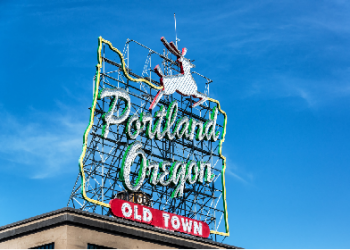Risk of Getting Your Bowel Perforated During a Colonoscopy: Discussed by Our Oregon Attorney
Bowel perforations are a serious problem during a colonoscopy. The hardship to a patient can be immense too. You have gone through the pain and strife of preparing for a colonoscopy for over 24 hours. You have had no solid foods that entire time. You have been consuming an obscene amount of a cleansing substance. Fast forward to the colonoscopy, your G.I. doctor informs you that your intestines were accidentally perforated. In other words, there is now an opening that can leak air and intestinal material into your abdominal cavity. You now have an infection and require surgical repair. But you feel weak and dehydrated now that you have not eaten anything for over a day. If you had your bowel perforated during a colonoscopy in Oregon, contact our Portland medical malpractice attorney today to learn what your rights to compensation may be under the law.
What is a Colonoscopy?
After the age of 50, every person must get a colonoscopy every 10 years, unless gastrointestinal or other issues call for more frequent colonoscopies. Quite common, a colonoscopy is a gastrointestinal exam that is performed to identify changes or abnormalities in the large intestine, or colon, and rectum. If a person is not undergoing a colonoscopy as a routine, because they are older than 50 years old, it may be because they are experiencing various gastrointestinal issues.
During a colonoscopy, a long tube called a colonoscope is inserted in the rectum and a tiny camera attached to the tube lets the doctor view the entire colon. The doctor will look for polyps, which are clumps of cells in the colon tissue, or any other abnormality through the scope. Biopsies may be taken during the procedure as well. Most of the time a colonoscopy is a very safe procedure, but a bowel perforated during a colonoscopy can be a very serious complication.
What does a Bowel Perforation from a Colonoscopy Look Like?
Sometimes a doctor during a colonoscopy can puncture, cut, or tear and make a hole in the colon wall. Since there is now a hole, air and intestinal material can leak into the abdominal cavity and infection can occur as a result. Damage to the colon wall can happen in several ways, but most commonly, it happens from direct trauma to the intestine wall, pressure increase against a weakened area, or broken-down intestinal wall from infection or disease. If a patient has certain conditions, those conditions can lead to the aforementioned causes of damage, and cause other issues during a colonoscopy as well appendicitis, diverticulitis, ulcerative colitis, and Crohn’s Disease.
How does one know their bowel has been perforated, whether or not their doctor informed them of such or noticed it? A patient will usually have bloody bowel movements, a fever, and severe abdominal pain. Further, air and fluids in the abdominal cavity may very well be a sign of perforation. A X-Ray (in catastrophic cases), ultrasound, MRI, or CT can determine whether perforation has taken place. Contact our Portland catastrophic medical malpractice attorney today to determine if your perforation was a result of medical malpractice.
How is a Bowel Perforation Treated?
How bowel perforations from colonoscopies are treated often depends on the size of the perforation itself. Your doctor must use sound discretion to decide what size needs treatment and which is so small it can heal by itself. The larger the perforation, the more likely treatment is needed. You will likely be given antibiotics, especially if one of the imaging tools mentioned above has found that you have air and fluids in your abdominal cavity. If the hole has been open for longer, that is another indication for more serious care.
Again, for larger holes that have been open for longer, which are usually more infected, much more serious care may be required, such as surgery. Since infected areas may infect surrounding areas, removal of the infected tissue in the intestinal wall may be required.
Alternatively, a colostomy may be needed in this case as well. A colostomy is when a hole is made in the abdomen and a piece of the colon is brought outside the abdomen, to create an opening so digested food can pass into an external pouching system.
Finally, antibiotics are an option or adjunct treatment. What is moving out of the colon and into the abdomen can contain much bacteria, which is why infection may occur. If the infection begins to pervade the entire body, sepsis will result. Antibiotics are important to prevent sepsis and other infections due to Oregon medical malpractice.
Ask Our Portland Catastrophic Medical Malpractice Lawyer if Bowel Perforations Harm You
If you or a loved one have been seriously injured or killed as a result of medical malpractice contact the Oregon Medical Malpractice Lawyers at Kuhlman Law at our number below or fill out the intake form. We offer a free initial case evaluation and handle cases on a contingency fee which means that you pay no money unless we recover.
Our law firm handles cases throughout the state including Bend and Portland Oregon, Redmond, Central Oregon, Sisters, Madras, Multnomah County, Deschutes County, Salem, Eugene, Corvallis, Lane County, Medford, Gresham, La Grande, Albany, Medford, Beaverton, Umatilla, Pendleton, Cottage Grove, Florence, Oregon City, Springfield, Keizer, Grants Pass, McMinnville, Tualatin, West Linn, Forest Grove, Wilsonville, Newberg, Roseburg, Lake Oswego, Klamath Falls, Happy Valley, Tigard, Ashland, Milwakie, Coos Bay, The Dalles, St. Helens, Sherwood, Central Point, Canby, Troutdale, Hermiston, Silverton, Hood River, Newport, Prineville, Astoria, Tillamook, Lincoln City, Hillsboro, and Vancouver, Washington.
We also have an office in Minneapolis, Minnesota and take medical malpractice cases throughout the Twin Cities, including St. Paul, Hennepin County, Ramsey County, Dakota County, Washington County, Anoka County, Scott County, Blaine, Stillwater, and Saint Paul Minnesota.




